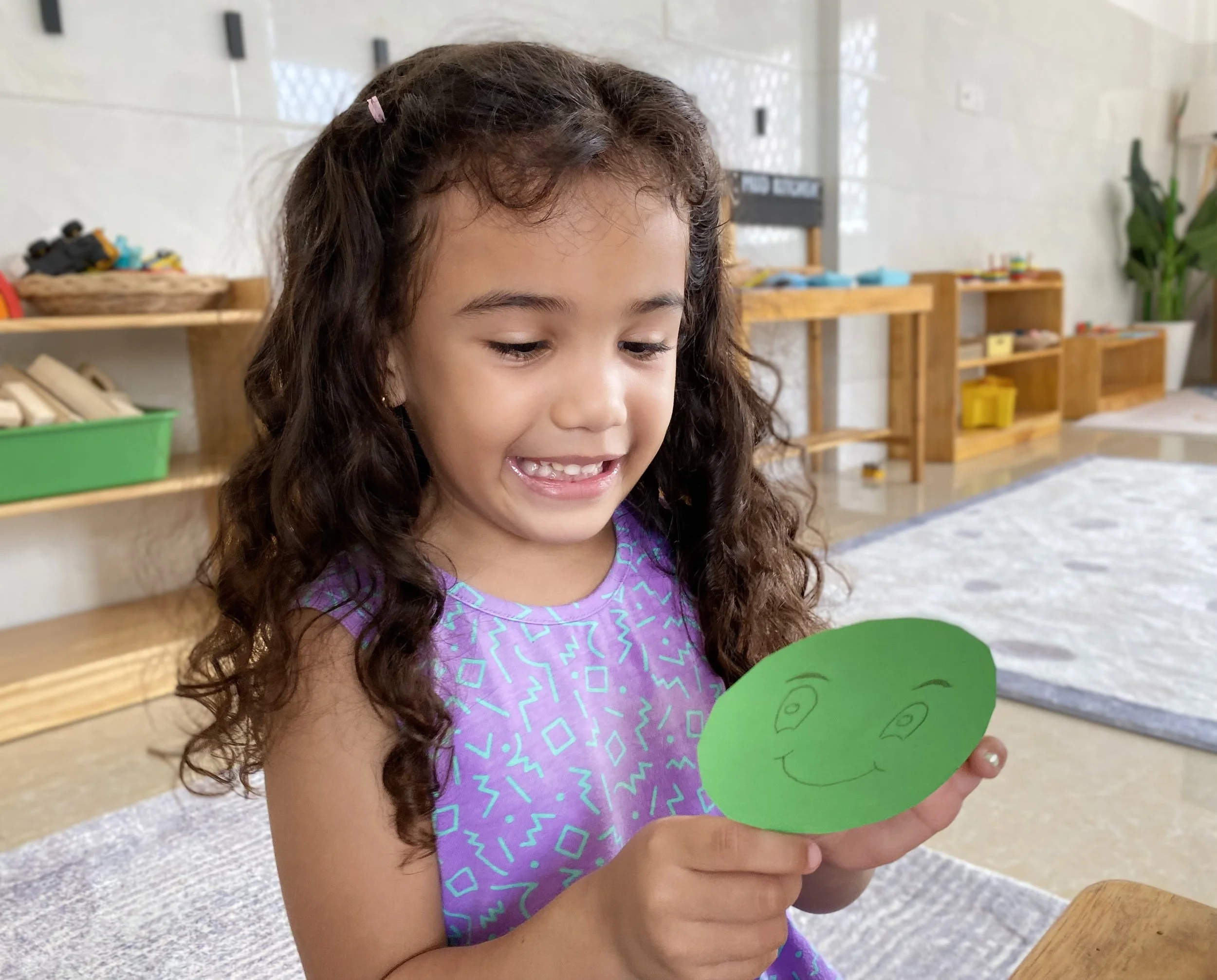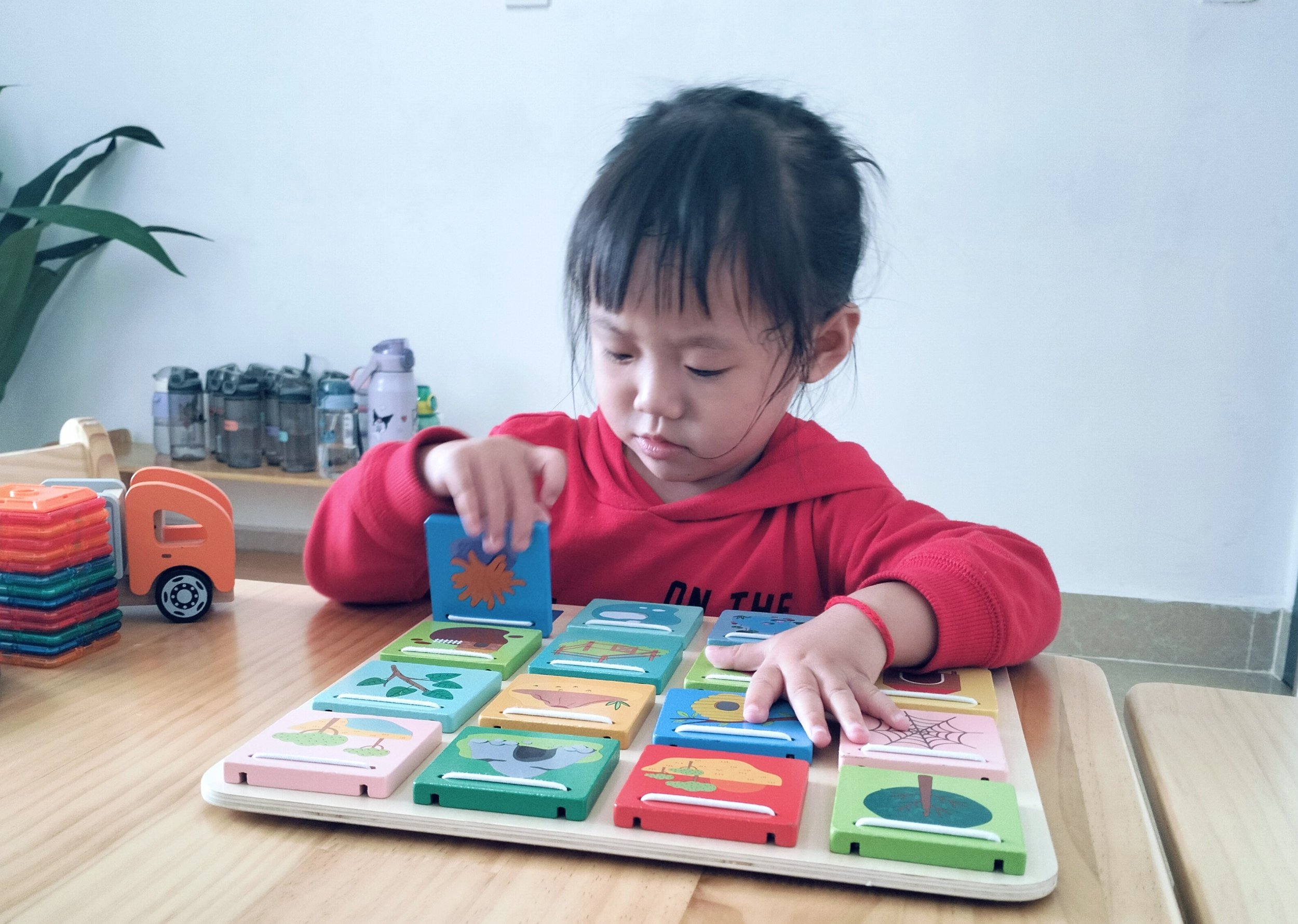
2 - 5 Years Old
Early Years Programme
What is the Reggio Emilia approach?
It’s the belief that your child is strong, capable, and full of wonder, has a voice, and a natural curiosity of the world around them.
The philosophy is engaging and thoughtful as it places high value on respect, community involvement and responsibility. It promotes active learning and encourages your child’s social and emotional growth through hands-on activities and experiences that are meaningful to them.
The arrangement of the physical environment is critical to a Reggio Emilia’s learning program and is often referred to as your child’s “third teacher”. At Inspire, we purposefully organise the environment to support your child in using their imagination with open ended materials. The open space is free from clutter and every material is intentionally considered for its purpose while every corner is ever-evolving to encourage children to delve deeper into their interests.
Reggio Emilia and Montesorri
Both were founded in 20th century Italy with similar educational philosophies but different in teaching methodologies. Reggio Emilia focus on a collaborative and project based learning, and emphasise the environment as the “third teacher”; learning is influenced by the equipment/resources/educators/children within that environment. On the other hand, Montensorri leans to individualised structured learning where children are given the skills to learn independently.
Reggio Emilia classroom are grouped by their age with time provided for interactions throughout the day with varying age children. Montesoori supports multi-age classrooms.
At Inspire, we go beyond simply teaching ABCs and 123s - we immerse children in our seven focus areas, laying the foundation for their overall growth and success.
By nurturing independence, confidence, social skills, motor coordination, and cognitive abilities, we empower children to actively engage in learning, think critically, communicate effectively, and adapt to new challenges. These fundamental skills naturally lead to the mastery of numeracy and literacy, which are essential for academic success.
Our holistic approach ensures that children thrive not just academically but also socially and emotionally, equipping them to become confident leaders in both the classroom and in life.
We advocate the concept of ‘how to learn’
rather than ‘what to learn’
Cognitive skills
Cognitive skills are the mental abilities that help us think, learn, and solve problems. For children, this skill development is the process by which they acquire, organise, and learn to use knowledge. It enables them to learn new things, to understand and participate in the world around them and to resolve challenges by themselve.
These are the types of activities in our daily programming:
Memory & Recognition
Matching Games: Matching cards, colors, or objects to build memory and recognition skills.
Story Recall: Reading a short story and asking simple questions to recall details.
Object Hiding Game: Hide a toy under a cup and let the child find it, improving working memory.
Problem-Solving & Critical Thinking
Simple Puzzles: Large-piece puzzles to develop problem-solving and spatial awareness.
Sorting & Categorising: Grouping objects by shape, size, or color to teach classification.
Stacking & Building: Using blocks to build towers, encouraging planning and coordination.
Logical Thinking & Reasoning
Cause & Effect Play: Using toys that respond to actions (e.g., push a button to make a sound).
Yes/No Sorting: Showing pictures and asking questions like, “Is this an animal?” to encourage decision-making.
Sequencing Activities: Arranging picture cards in order, such as brushing teeth or going to school.
Emotional skills
Emotional skills refer to a child’s ability to recognise, understand, express, and regulate their emotions. These skills help children develop self-confidence, manage frustration, show empathy, and build healthy relationships with others.
At Inspire, our children develop strong emotional intelligence, which helps them build positive relationships, handle stress, and navigate social situations effectively.
Labelling Emotions
Use picture books, flashcards, or mirrors to help children identify and name emotions (happy, sad, angry, excited).
Play emotion charades where children act out different feelings.
Self-Regulation Activities
Teach deep breathing teachniques (e.g., “smell the flower, blow out the candle”).
Introduce a “calm-down corner” with soft toys, books, and sensory items.
Empathy Building
Encourage role-playing with dolls or puppets to discuss feelings.
Model and practice comforting others (e.g., giving a hug or saying kind words).
Taking Turns and Sharing
Play cooperative games where children take turns (e.g., rolling a ball to each other).
Use a timer during play to help children understand waiting for their turns.
Expressing Feelings Through Art
Encourage drawing or painting to express emotions.
Storytelling and Discussion
Read books that focus on emotions and ask children how they think the characters feel.
Encourage them to talk about their own emotions during circle time.
Problem-Solving Activities
Guide children through simple conflict-resolution scenarios (e.g., “What can you do if a friend takes your toy?”).
Use visual charts with different choices for handling emotions.
Fine motor skills
Fine motor skills involve the coordination of small muscles in the hands and fingers to perform precise movements. These skills are essential for daily tasks like writing, buttoning clothes, and using utensils.
For children aged 2 to 5 years, fine motor development helps them build hand strength, dexterity, and coordination needed for future writing and self-care activities.
Hand & Finger Strength
Sponge Squeezing: Filling and squeezing sponges during water play improves grip strength.
Tearing Paper: Helps develop hand control and finger strength.
Grasping & Manipulation
Picking Up Small Objects: Using fingers to pick up beads, buttons, or small toys.
Tweezers & Tongs Activity: Using tweezers to transfer small objects enhances pincer grasp.
Lacing Beads: Threading large beads onto string improves hand-eye coordination.
Hand-Eye Coordination
Puzzles: Fitting pieces together strengthens problem-solving and precise hand movements.
Stacking Blocks: Encourages precision in hand movements.
Pegboard Activities: Placing pegs into holes enhances spatial awareness.
Self-Care Skills
Using a Spoon & Fork: Encourages independence in eating.
Buttoning & Zipping: Practising with big buttons and zippers builds dexterity.
Brushing Teeth & Combing Hair: Helps children gain control of hand movements.
Pre-Writing Skills
Scribbling & Colouring: Using crayons, chalk, or markers improves grip and hand control.
Tracing Shapes: Following dotted lines with a finger or pencil strengthens control.
Cutting with Safety Scissors: Practising with child-friendly.
Gross motor skills
Gross motor skills involve large muscle movements that help with balance, coordination, strength, and control. These skills are essential for activities like running, jumping, climbing, and overall physical development.
For children aged 2 to 5 years, developing gross motor skills builds strength, coordination, and confidence, allowing them to engage in daily activities and play.
Balance & Coordination
Walking on a Line: Helps with balance and body control.
Standing on One Foot: Develops stability and core strength.
Hopscotch: Encourages hopping, jumping, and foot placement.
Running & Jumping
Chasing Games (Tag): Improves speed and agility.
Jumping Over Obstacles: Enhances leg strength and coordination.
Skipping & Hopping: Develops rhythms and leg control.
Climbing & Crawling
Climbing Stairs: Builds leg strength and balance.
Crawling Through Tunnels: Encourages full-body movement and coordination.
Climbing Play Structures: Strengthen muscles and boost confidence.
Dancing & Movement
Action Songs (e.g., “If you’re Happy and You Know It”): Encourage movement in rhythm.
Dancing with Music: Improves flexibility, coordination, and expression.
Animal Walks (Bear Crawl, Frog Jumps, Crab Walk): Enhances strength and flexibility.
Social skills
Social skills are the abilities that help children interact positively with others, build relationships, communicate effectively, and follow social norms. These skills include sharing, taking turns, cooperating, actively listening, and understanding social cues. Developing social skills at an early age helps children build friendships, work well in groups, and navigate social situations with confidence.
Turn-Taking Game
Play board games or card games where children must wait for their turn.
Use a talking stick in group activities to teach them to wait before speaking.
Sharing Activities
Use a “sharing box” where children must wait for their turn.
Use a talking stick in group activities to teach them to wait before speaking.
Role-Playing and Pretend Play
Set up pretend-play scenarios (e.g., playing “store” or “doctor”) to encourage social interactions.
Use puppets to act out different social situations and problem-solving.
Listening Games
Play “Simon Says” to develop active listening skills.
Read a story and ask children to retell parts of it in their own words.
Greetings and Manners Practice
Teach children to say “hello,” “please,” “thank you,” and “excuse me” through role-playing.
Use flashcards with different social situations and ask children how to respond politely.
Group Activities
Organise group crafts or cooking activities that require teamwork.
Have a “clean-up time” where children work together to tidy up.
Emotion Recognition and Perspective-Taking
Show pictures of different facial expressions and ask children to guess the emotion.
Ask “How would you feel if…?” questions to develop empathy and understanding.
Following Rules and Directions
Play “Red Light, Green Light” to teach listening and rule-following.
Have classroom routines where children learn to follow simple instructions (e.g., lining up quietly).
Language skills
Language skills are fundamental to a child's development, laying the foundation for communication, literacy, and overall cognitive growth. At around 2 years old, children can put together 2 to 3 words such as 'red apple' and by 3 years old, able to put together a short sentence such as 'mummy is at work'.
Our program is fun and engaging; we read books and sang several well-loved rhymes to enhance the children's listening skills and to help them follow simple instructions. We use flash cards and shapes to instruct, and as always, lots of learning took place during their play time. The children are encouraged to also ask questions to demonstrate their understanding of the lessons.
Gardening
Gardening has incredible benefits for children’s health and development.
Responsibility: Gardening is not just a one-time activity, but it teaches children a series of responsibilities.
Discovery: From plants to nutrition, gardens are the best places to learn about the journey of life.
Love of Nature: Gardening is about caring for the environment, and this love of nature will stay with them throughout their lives.
Self-help skills
Self-help skills: for children are the abilities that enable them to take care of their daily needs independently. These skills include feeding themselves, dressing, washing hands, brushing teeth, and managing personal hygiene.
They also involve practical tasks like tidying up toys, sorting items, or following routines. Developing self-help skills helps children build confidence and problem-solving abilities. These foundational skills prepare them for greater independence and responsibility as they grow.
At Inspire, we priorities consistent communication. Rather than holding biannual or annual face-to-face meetings, we provide parents with daily updates and share detailed learning progress reports every two months.
We believe these updates are crucial because children at this age experience significant learning and development every single day. Capturing and sharing this remarkable growth empowers parents to actively support and stay engaged in their child’s educational journey.
Stay connected with our school app
Our Staff Training Day
Staff training at Inspire Learning School is a vital part of our journey toward excellence. Each month, we come together to enhance our skills, deepen our understanding, and grow as educators. These sessions not only help us refine our daily practices but also equip us with new strategies to better inspire and support the children in our care. By continuously learning and evolving, we strengthen our ability to create a nurturing environment where every child feels valued and encouraged to reach their full potential. Our commitment to growth ensures that we are not only investing in ourselves but also in the bright futures of the children we teach.






Staff Social Events
Working with children is truly a joy and undoubtedly the most rewarding part of our job. Beyond our daily work, our team comes together throughout the year to share meals and strengthen bonds with colleagues. These events are always a lot of fun because fostering connection and enjoyment is deeply ingrained in our team culture.


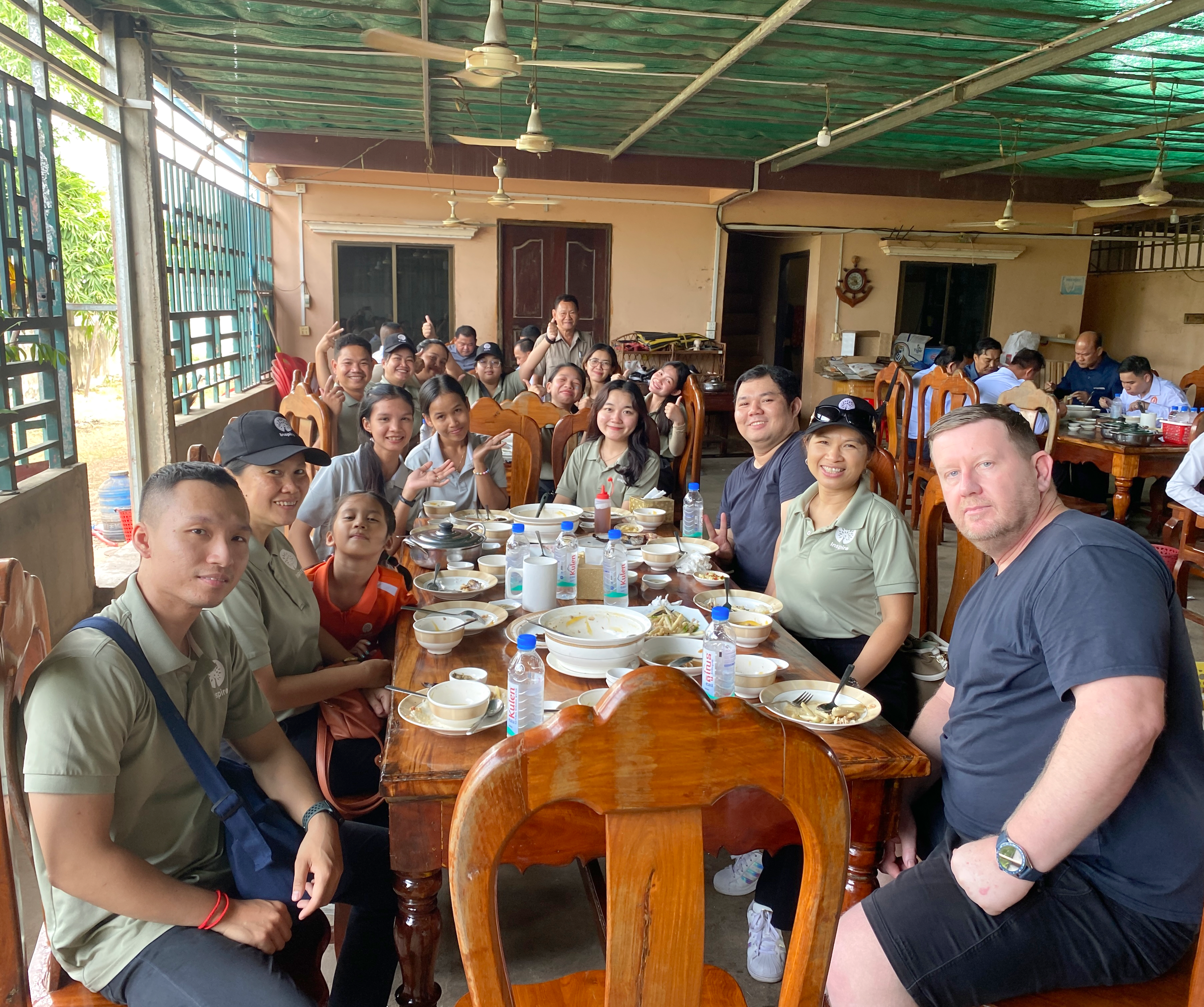
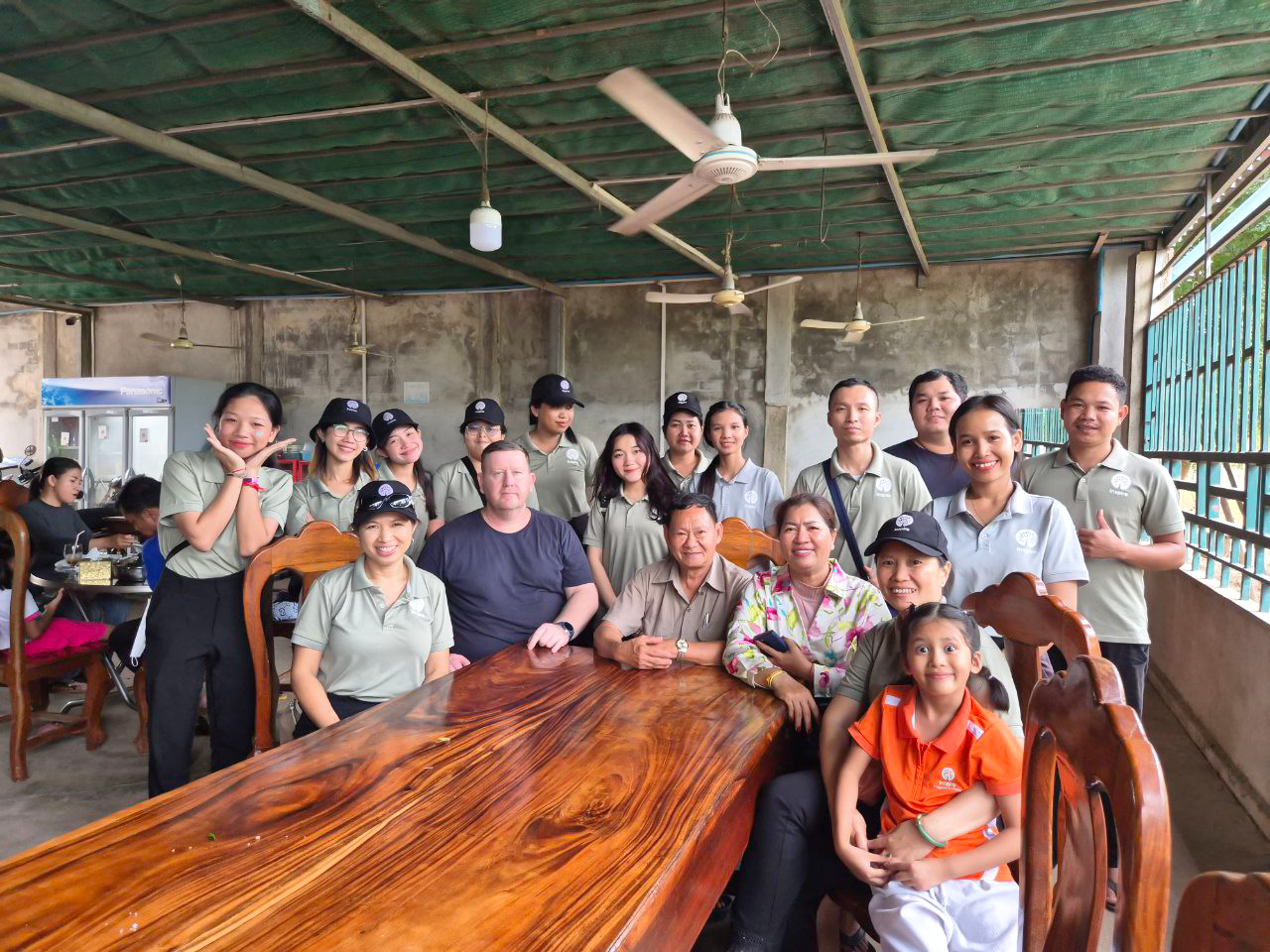
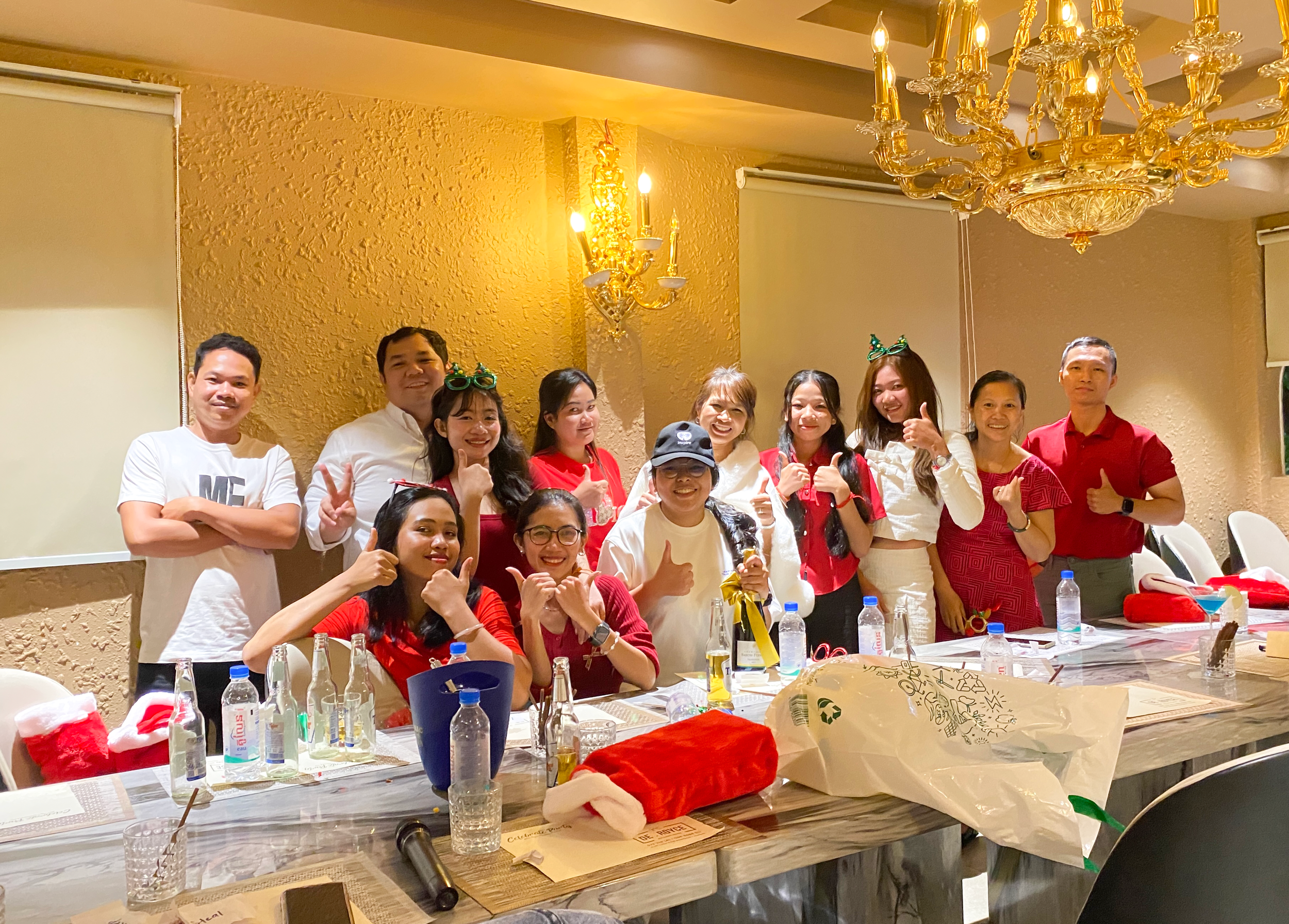
Our School Fee
KM6 Campus
$180
Per month
Enrolment Fee
We charge the enrolment fee at the deposit bond
Monday to Friday
Opening Hours: 7:30am - 5:30pm
RSK Campus
$210
Per month
Our Lunch Menu
Monthly Lunch Subscription: $40.83
Monday
Rice with Marinated pork
Tuesday
Egg roll with vegetables and rice
Wednesday
Rice with Marinated beef
Thursday
Fish meatball and rice
Friday
Rice with Marinated Chicken
Soup
Soup is served with every meal

Russey keo Campus(RSK)
Street 907, Khan Russey Keo, Phnom Penh, Cambodia
Kilometre 6 Campus (KM6)
Borey Hong LengYi, St A, Phnom Penh 120702, Cambodia









